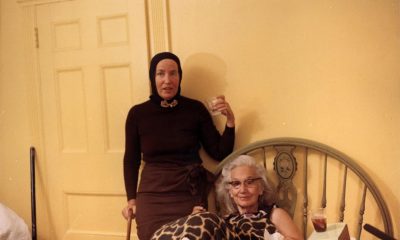Arts & Entertainment
Mother’s Day with Margaret
Cho on her new tour, hit Lifetime show and being in bed with Joan Rivers
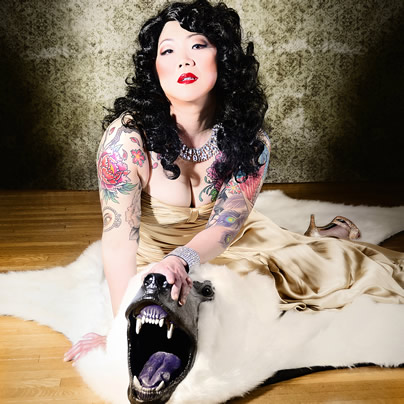
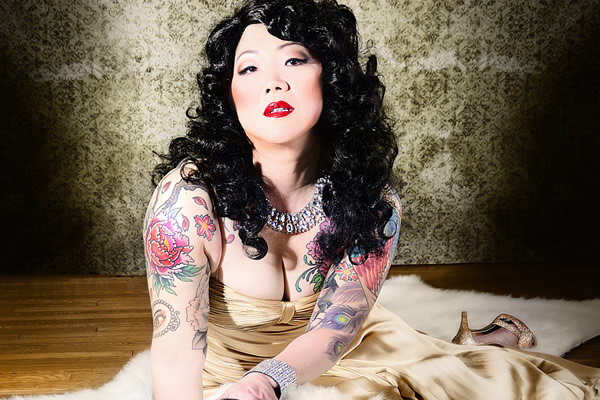
Margaret Cho’s tour celebrates her own mother’s ‘amazing innate wisdom,’ but also the grand dame-type mantle she’s found placed upon her by the gay community. (Photo courtesy Miss Missy Photography via Ken Phillips Publicity Group)
Margaret Cho
‘Mother Tour’
Saturday
Warner Theater
1299 Pennsylvania Ave.
With Jim Short
$40.50-$69.50
8 p.m.
Margaret Cho has her hand in so many different ventures, she makes Ryan Seacrest look like a lazy slob.
Her hit show “Drop Dead Diva” is in the midst of its fifth season and airs Sunday nights at 9 p.m. on Lifetime. It just got picked for a sixth. “In Transition,” a YouTube series about three women fresh out of jail, ran until mid-September. She teamed with comedian Jim Short for a new podcast show called “Monsters of Talk” and she was just on “The Talk,” “The Arsenio Hall Show,” “E!’s Fashion Police with Joan Rivers,” Hallmark Channel’s “Home & Family” and “Chelsea Lately.”
Look for her on “The Late Late Show” with Craig Ferguson on Nov. 19. And on Saturday night, she brings her “Mother Tour,” which kicked off in Georgia in August, to the Warner Theater.
We caught up with Cho, a long-time LGBT advocate and bi herself, a few weeks ago by phone. Her comments have been slightly edited for length.
WASHINGTON BLADE: Congratulations on the success with “Drop Dead Diva.” You must be delighted it’s doing so well.
MARGARET CHO: Yes, I am. You’re always expecting that anything could happen and it’s also very rare to have a show that lasts that long. Very few shows I’ve done have ever really gone more than one season so it’s a very — well, you get more used to things getting canceled than picked up. You just always prepare for the worst. The last thing we had heard (at the end of the fourth season) was that we had been cancelled, but then it got picked up again which was interesting. I’d never seen that happen before.
BLADE: Where is it shot?
CHO: In Atlanta. But not even in the city itself. It’s about an hour south in a little town called Peachtree City.
BLADE: Do you live in L.A.?
CHO: Yes, but in Atlanta when we’re filming. I’m also on the road all the time.
BLADE: How does it feel politically in the South?
CHO: Atlanta itself is incredibly queer-friendly and progressive. We have great restaurants and great chefs and mixologists, so it’s very sophisticated and a really gorgeous place to live and hang out but then you go, like, one mile outside the city and it’s so country and so conservative you can’t believe it. I drive by a sign all the time that says “actors and models for Christ.” Peachtree City is like southern headquarters for the tea party, which they’re very proud of. There’s a little gay bar near where we work. We called them and asked if that was the gay bar and they were like, “Oh no, certainly not,” but it’s where the local gay people have agreed to hang out. They were offended when I even called and asked if it was true. But the real gay bar is the Home Depot by our set. They have aisles there that are specifically for cruising. That’s just stuff I’ve heard. People adapt to the environment.
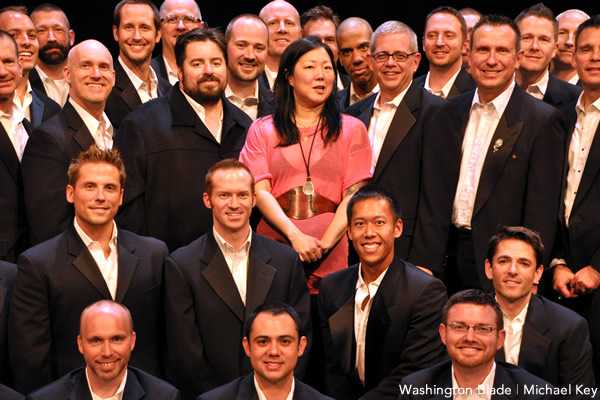
Margaret Cho with the Gay Men’s Chorus of Washington in 2010. (Washington Blade file photo by Michael Key)
BLADE: You’ve always been very progressive and outspoken. Does it make you crazy to be in that kind of environment?
CHO: I don’t really care as long as it doesn’t infringe on my life. When they’re trying to do things like ban gay marriage or trying to keep gay couples from adopting, when they’re trying to control what happens in our families, that’s when it becomes disturbing. I don’t have issues with anybody’s religion or thoughts about whatever as long as they’re not attacking other people, gay people. Also, I want some explanation. There’s another sign out here that just says “Jesus” in huge letters. No URL, no nothing else. I’m thinking, “OK, I’m supposed to look at this and think what exactly?” I mean, I know who Jesus is. I know it’s a name. But it’s just this thing, this sign.
BLADE: You’ve been on “The View” several times. Was it ever hard to keep your cool? Did you ever get into it with Elisabeth Hasselbeck?
CHO: No, she’s a really nice person. We’re all very opinionated on there and we all have our own ideas. We don’t necessarily agree, but that’s OK. It’s OK to agree to disagree. I don’t feel I have to try to control other people’s beliefs.
BLADE: I loved your episode of “In Bed With Joan” (Rivers). It’s obvious you have a good rapport with her. What’s she like when the camera’s not rolling?
CHO: She’s so sweet and so generous and actually really loving. I mean really wise. And just full of amazing stories. She was telling me recently about meeting Laurence Olivier and he had been doing impressions of Danny Kaye. They just had these wonderful moments and you can tell she has just been this amazing fag hag for forever with this true-life fag hag history that really needs to be preserved. I mean imagine being a fag hag like her back in the day when she was doing her Elizabeth Taylor shit. It was just so profound and cool.
BLADE: But is she “on” all the time like she is in her stage or on-camera persona?
CHO: She’s actually really gentle, which is kind of surprising when you think about her stage persona. But she’s actually more like a soft-spoken, gentle person — this almost shy kind of woman. But she’s really loving, really a mom and really just hilarious. I think she’s really special.
BLADE: Your tour is called “Mother.” Tell us a little about it.
CHO: I’ve just started doing it a little now. It’s really kind of about being like Joan in a way, just being that grand dame fag hag where now people call me mother. Like being some sort of mother superior. You get to a point where you sort of have this grandeur of outlook, a kind of maturity. Then some of it too, is about my mother. And just about aging, about sexuality, about bisexuality, a lot of different things.
BLADE: If somebody were to follow you around from city to city, how much does your act change from night to night? It looks so off the cuff, but obviously it can’t really be as improvisational as it seems.
CHO: I think it’s probably a pretty totally different thing. You never know where the audience will lead you. You have to be really adept at tuning into the audience and it gets really personalized. You do it all over the world, so you get a sense of the place and each show becomes really specifically about each different city.
BLADE: How do you read an audience?
CHO: I ask specific questions and some of it depends on what I’m feeling or what’s going on in the news or what I feel needs to be talked about. There are a lot of different ways to do that. And then you just build up a conversation and that leads you into other things. There are some jokes that may be there consistently but they change in a way. You’re personalizing it to them.
BLADE: So many female comedians from you and Kathy Griffin to Joan and even back to Phyllis Diller seem to have these strong gay male audiences. Why is that?
CHO: I’ve just always been in with the gay community. I grew up with it. I just always had a real strong sense of family within the gay community. I think what it is in general is just the attraction to these strong female archetypes. Like with Kathy and Joan, it’s like gay men are looking for mother figures in a way whether it’s almost like vintage, like with Joan Crawford, or something tragic, like Judy Garland, or just somebody really strong like Madonna or really young like Gaga. I think it’s really a great thing. Joan (Rivers) I think is seen as more of a mom type. Kathy and I not as much, but maybe another kind of strong figure. It’s great and really satisfying.
BLADE: Where were you when you heard about the DOMA repeal?
CHO: I think I must have been in Atlanta. I remember thinking it was hard to imagine what that would look like in a state like Georgia, in some of these places that are so conservative.
BLADE: How did you feel?
CHO: I was really excited. It had been a very long time coming. It’s something we’ve worked for for such a long time. It’s so great to see that you can actually effect change. That’s really gratifying. I was able years ago to perform weddings at City Hall in San Francisco. I think I’ll be doing that again, which is really awesome, really satisfying.
BLADE: You have so much going on. Do you get overwhelmed by it or just want to stay home sometimes?
CHO: A lot of my work is also tied up in my social life so it’s kind of not really work. It’s also play too. A lot of it allows me to see people I love and hang out with them and talk about whatever, whether it’s Joan or Kathy or any of these people I just adore. It’s just a great opportunity — you forget that you’re working.
BLADE: But don’t you feel pressure? Working non-stop in the entertainment industry seems like it would feel like swimming in a shark tank or something.
CHO: I guess, but I have pressure in other ways. In the standup world, I feel really comfortable. It’s something other people might find really scary, but it’s something I know I can do. It’s just part of my nature. It’s not nearly as much pressure as trying not to be so self conscious for the camera or on a photo shoot or something where I kind of just get so embarrassed at trying to put on my sexy face, which just feels so stupid. I get really self-conscious in the more visual representation stuff. But standup is the one place where it’s very effortless. It’s very calming.
BLADE: I remember this photo of Bob Hope once in Vanity Fair and he was showing his joke library, which looked like a huge card catalog system with rows and rows. Do you have any system for keeping track of your own material?
CHO: I don’t have anything physical where I’ve written anything out. I’ve made a bunch of standup comedy films so all the material is there in the films but I don’t have anything written down. That would be great — I would love to be that organized, but I have a pretty good handle on the stuff I’ve done.
BLADE: Like Gwen? That became a running gag with some friends of mine.
CHO: Oh yes. Yeah, with Gwen, I just remember being so upset and the procedure itself being actually physically quite painful and it just seemed so funny to me that this woman felt the need to introduce herself to me and tell me she was there to wash my vagina in this very matter-of-fact way. That’s just what she does. So I kind of laughed and calmed myself in the moment.
BLADE: It’s quite shocking sometimes how much you manage to get away with. With a society that can really rake somebody across the coals for going over the line — I’m thinking of the Don Imus incident a few years ago — do you ever fear you’ll go too far and really piss off the world or have people turn on you?
CHO: The thing with comedy is there’s always the possibility that something like that could happen and you never really know what people are going to find offensive so you want to ride that line of being really funny but that also runs the risk of — well, you want it to go far, but not too far and where that point is, you don’t always really know. I guess whatever happens I can handle. I just try to push it as far as I can and I think you get a little immunity if you’re a woman or a person of color and queer and a gay activist and a feminist. If you’re a civil rights person and people know that, you can get away with not always being so politically correct all the time. You can kind of play the race card, or the gender card as a kind of get-out-of-jail-type thing. But you can’t rely on that too much either. Yeah, it’s a very difficult position. I just try to do my best.
Italy
Olympics Pride House ‘really important for the community’
Italy lags behind other European countries in terms of LGBTQ rights

The four Italian advocacy groups behind the Milan Cortina Winter Olympics’ Pride House hope to use the games to highlight the lack of LGBTQ rights in their country.
Arcigay, CIG Arcigay Milano, Milano Pride, and Pride Sport Milano organized the Pride House that is located in Milan’s MEET Digital Culture Center. The Washington Blade on Feb. 5 interviewed Pride House Project Manager Joseph Naklé.
Naklé in 2020 founded Peacox Basket Milano, Italy’s only LGBTQ basketball team. He also carried the Olympic torch through Milan shortly before he spoke with the Blade. (“Heated Rivalry” stars Hudson Williams and Connor Storrie last month participated in the torch relay in Feltre, a town in Italy’s Veneto region.)
Naklé said the promotion of LGBTQ rights in Italy is “actually our main objective.”
ILGA-Europe in its Rainbow Map 2025 notes same-sex couples lack full marriage rights in Italy, and the country’s hate crimes law does not include sexual orientation or gender identity. Italy does ban discrimination based on sexual orientation in employment, but the country’s nondiscrimination laws do not include gender identity.
ILGA-Europe has made the following recommendations “in order to improve the legal and policy situation of LGBTI people in Italy.”
• Marriage equality for same-sex couples
• Depathologization of trans identities
• Automatic co-parent recognition available for all couples
“We are not really known to be the most openly LGBT-friendly country,” Naklé told the Blade. “That’s why it (Pride House) was really important for the community.”
“We want to use the Olympic games — because there is a big media attention — and we want to use this media attention to raise the voice,” he added.

Naklé noted Pride House will host “talks and roundtables every night” during the games that will focus on a variety of topics that include transgender and nonbinary people in sports and AI. Another will focus on what Naklé described to the Blade as “the importance of political movements now to fight for our rights, especially in places such as Italy or the U.S. where we are going backwards, and not forwards.”
Seven LGBTQ Olympians — Italian swimmer Alex Di Giorgio, Canadian ice dancers Paul Poirier and Kaitlyn Weaver, Canadian figure skater Eric Radford, Spanish figure skater Javier Raya, Scottish ice dancer Lewis Gibson, and Irish field hockey and cricket player Nikki Symmons — are scheduled to participate in Pride House’s Out and Proud event on Feb. 14.
Pride House Los Angeles – West Hollywood representatives are expected to speak at Pride House on Feb. 21.
The event will include a screening of Mariano Furlani’s documentary about Pride House and LGBTQ inclusion in sports. The MiX International LGBTQ+ Film and Queer Culture Festival will screen later this year in Milan. Pride House Los Angeles – West Hollywood is also planning to show the film during the 2028 Summer Olympics.
Naklé also noted Pride House has launched an initiative that allows LGBTQ sports teams to partner with teams whose members are either migrants from African and Islamic countries or people with disabilities.
“The objective is to show that sports is the bridge between these communities,” he said.
Bisexual US skier wins gold
Naklé spoke with the Blade a day before the games opened. The Milan Cortina Winter Olympics will close on Feb. 22.
More than 40 openly LGBTQ athletes are competing in the games.
Breezy Johnson, an American alpine skier who identifies as bisexual, on Sunday won a gold medal in the women’s downhill. Amber Glenn, who identifies as bisexual and pansexual, on the same day helped the U.S. win a gold medal in team figure skating.
Glenn said she received threats on social media after she told reporters during a pre-Olympics press conference that LGBTQ Americans are having a “hard time” with the Trump-Vance administration in the White House. The Associated Press notes Glenn wore a Pride pin on her jacket during Sunday’s medal ceremony.
“I was disappointed because I’ve never had so many people wish me harm before, just for being me and speaking about being decent — human rights and decency,” said Glenn, according to the AP. “So that was really disappointing, and I do think it kind of lowered that excitement for this.”
Puerto Rico
Bad Bunny shares Super Bowl stage with Ricky Martin, Lady Gaga
Puerto Rican activist celebrates half time show

Bad Bunny on Sunday shared the stage with Ricky Martin and Lady Gaga at the Super Bowl halftime show in Santa Clara, Calif.
Martin came out as gay in 2010. Gaga, who headlined the 2017 Super Bowl halftime show, is bisexual. Bad Bunny has championed LGBTQ rights in his native Puerto Rico and elsewhere.
“Not only was a sophisticated political statement, but it was a celebration of who we are as Puerto Ricans,” Pedro Julio Serrano, president of the LGBTQ+ Federation of Puerto Rico, told the Washington Blade on Monday. “That includes us as LGBTQ+ people by including a ground-breaking superstar and legend, Ricky Martin singing an anti-colonial anthem and showcasing Young Miko, an up-and-coming star at La Casita. And, of course, having queer icon Lady Gaga sing salsa was the cherry on the top.”
La Casita is a house that Bad Bunny included in his residency in San Juan, the Puerto Rican capital, last year. He recreated it during the halftime show.
“His performance brought us together as Puerto Ricans, as Latin Americans, as Americans (from the Americas) and as human beings,” said Serrano. “He embraced his own words by showcasing, through his performance, that the ‘only thing more powerful than hate is love.’”
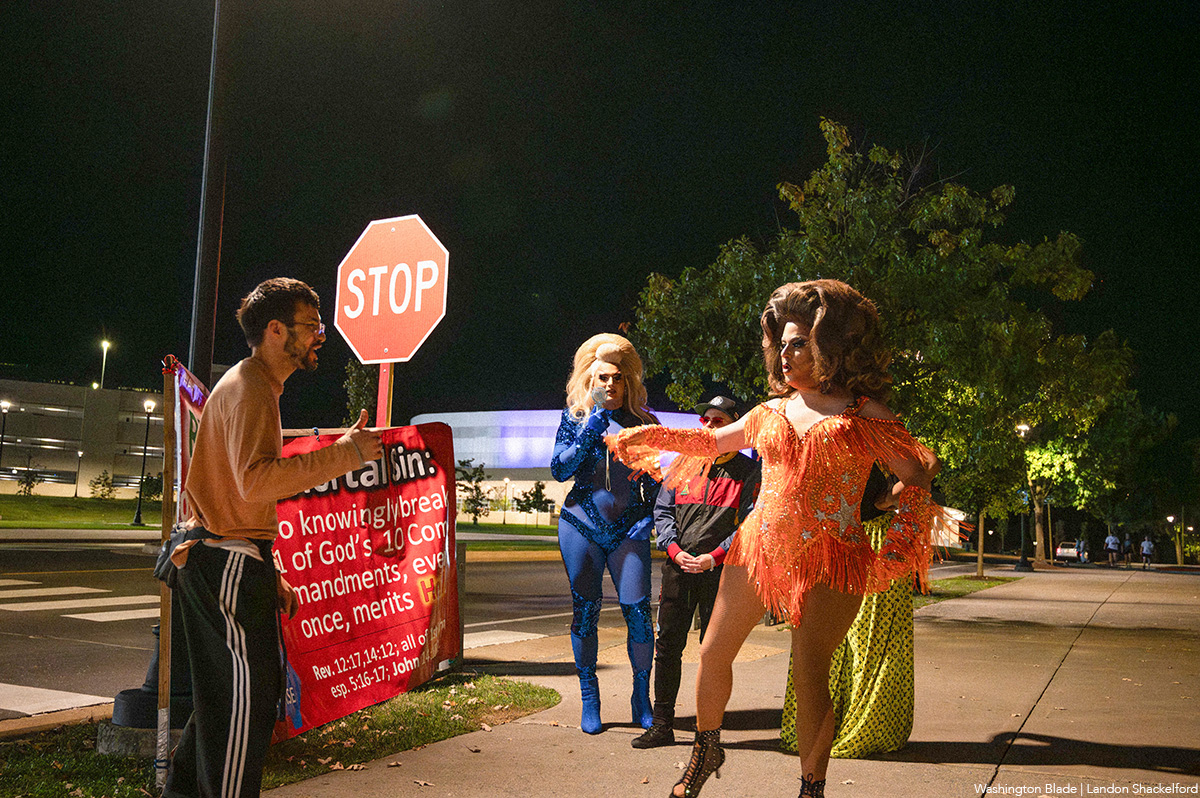
Drag artists perform for crowds in towns across Virginia. The photographer follows Gerryatrick, Shenandoah, Climaxx, Emerald Envy among others over eight months as they perform at venues in the Virginia towns of Staunton, Harrisonburg and Fredericksburg.
(Washington Blade photos by Landon Shackelford)
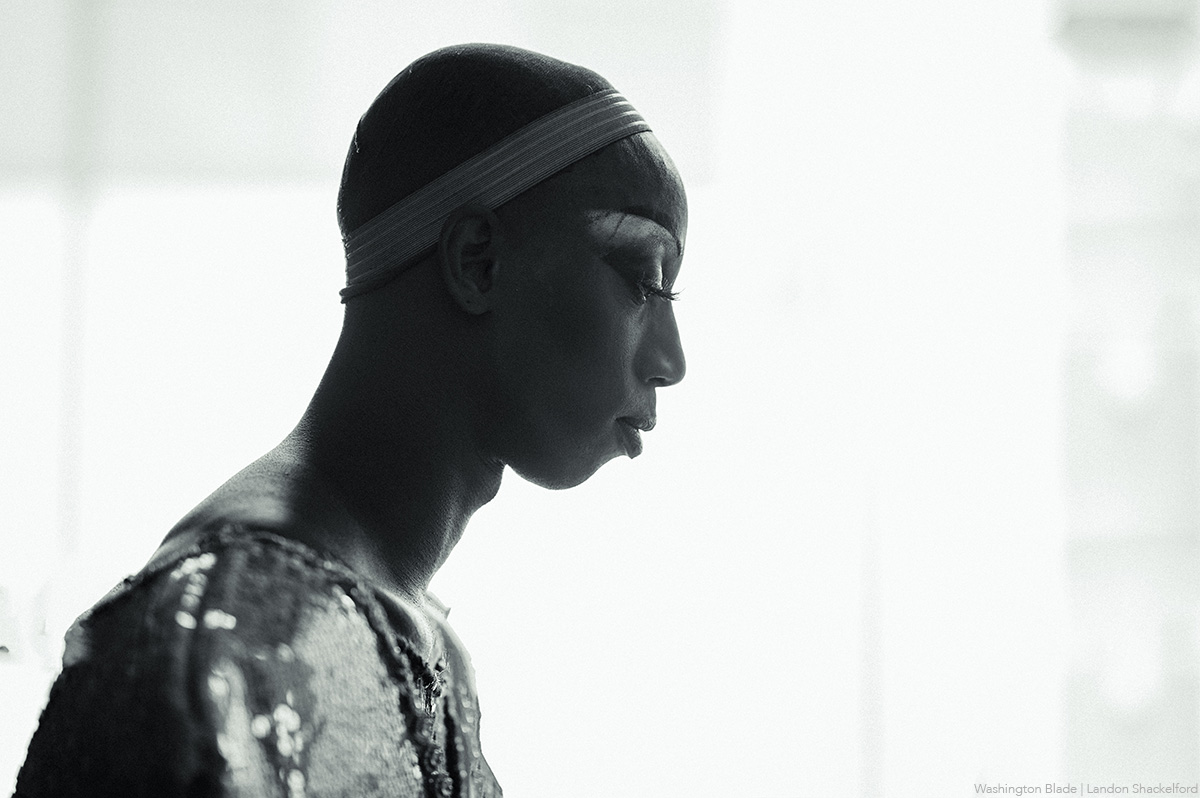
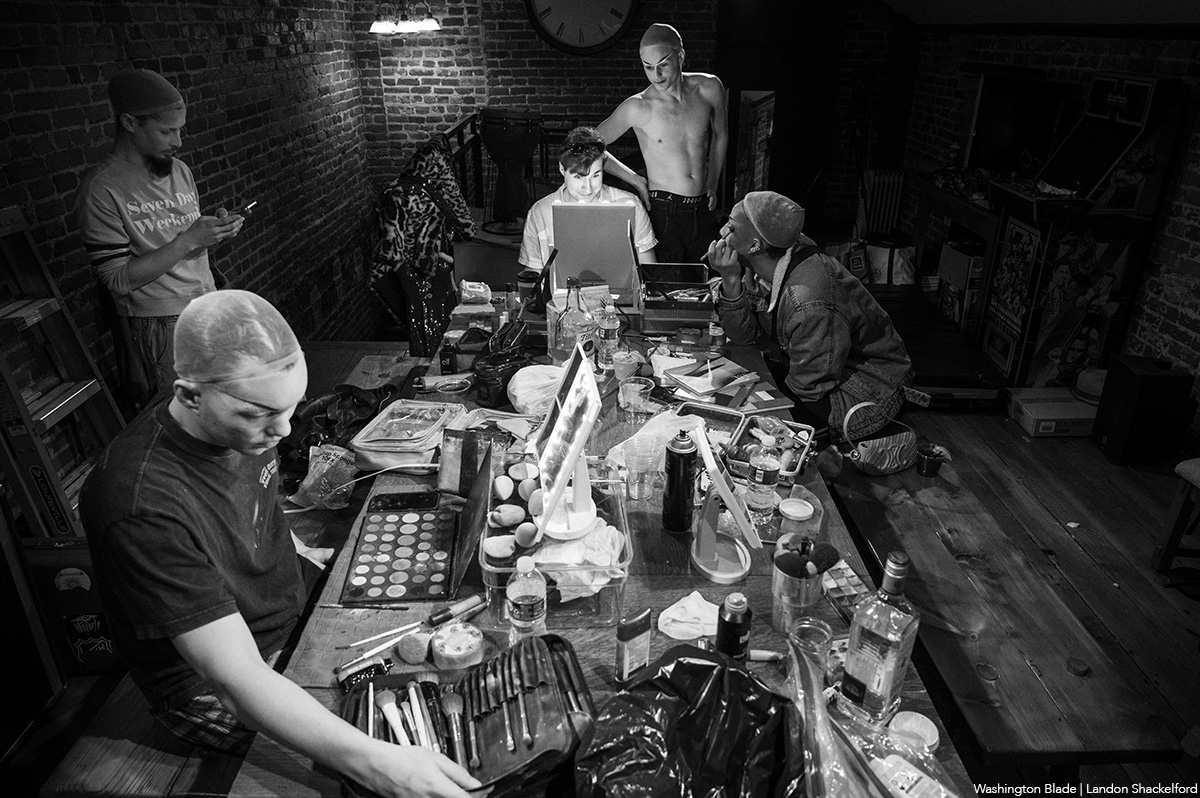
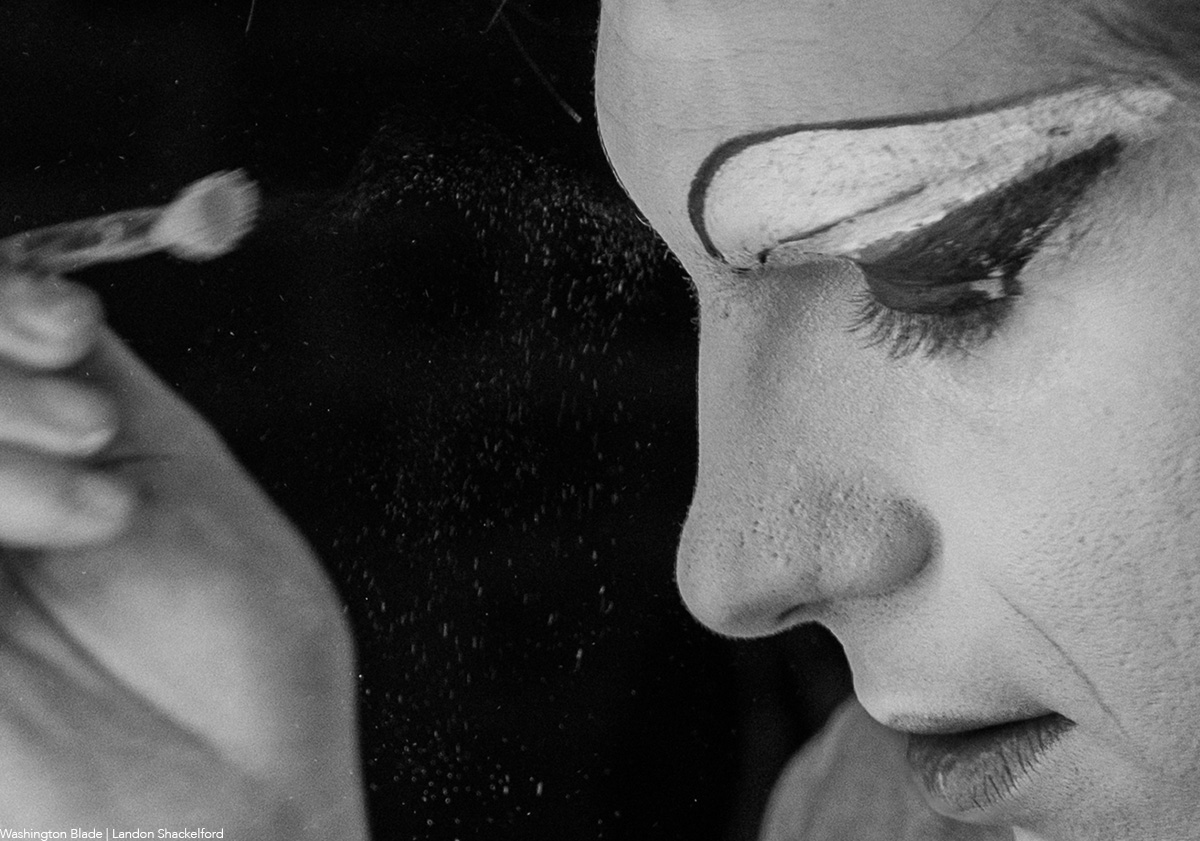
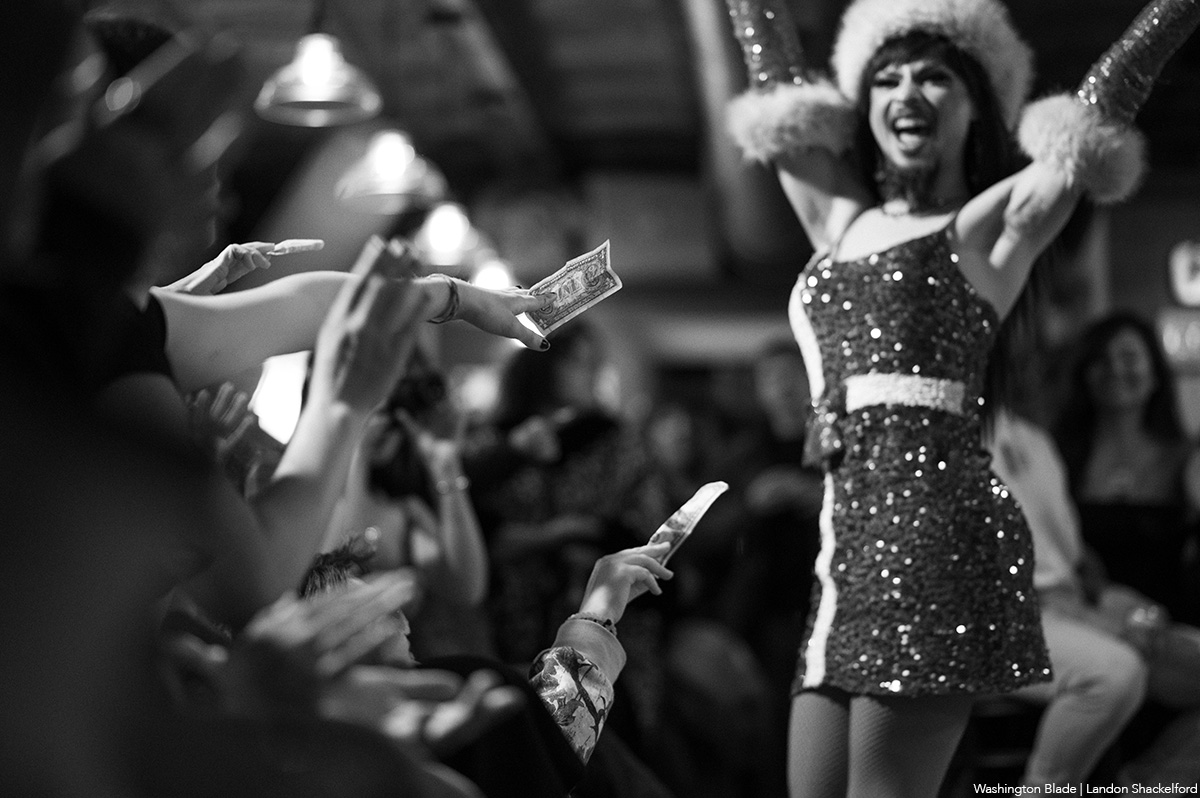
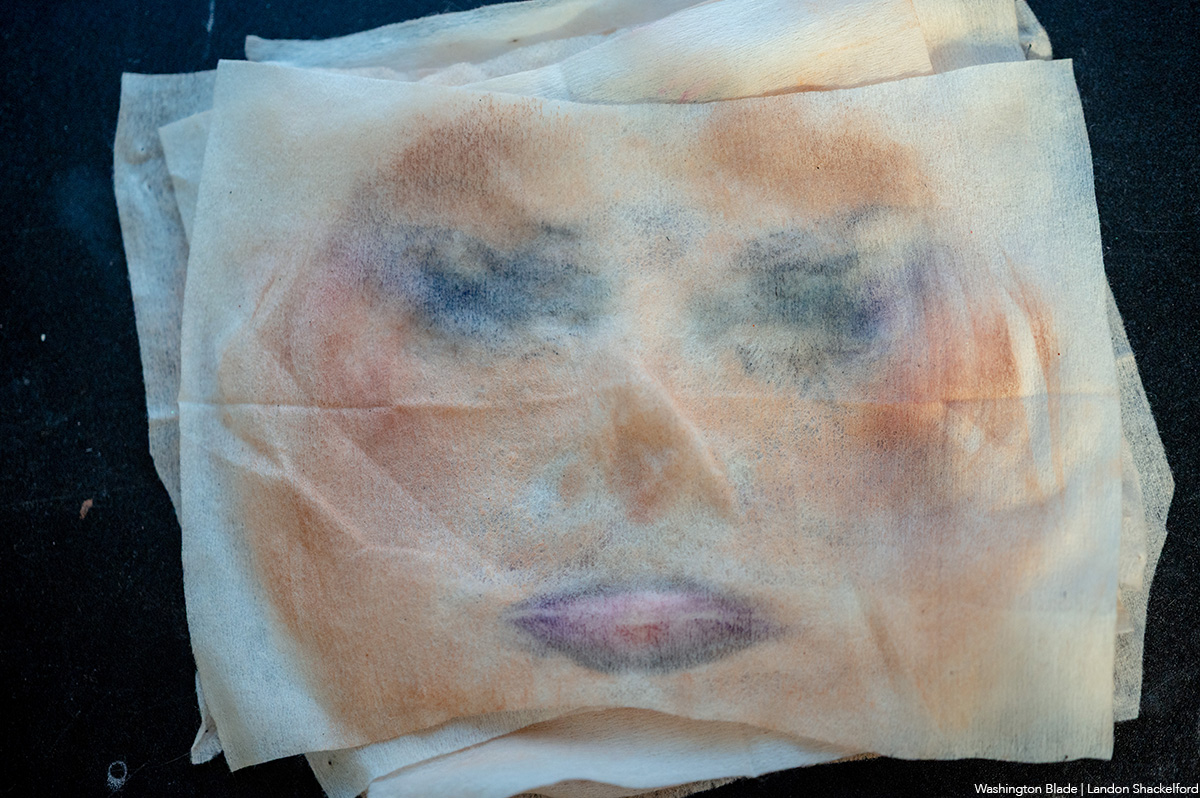
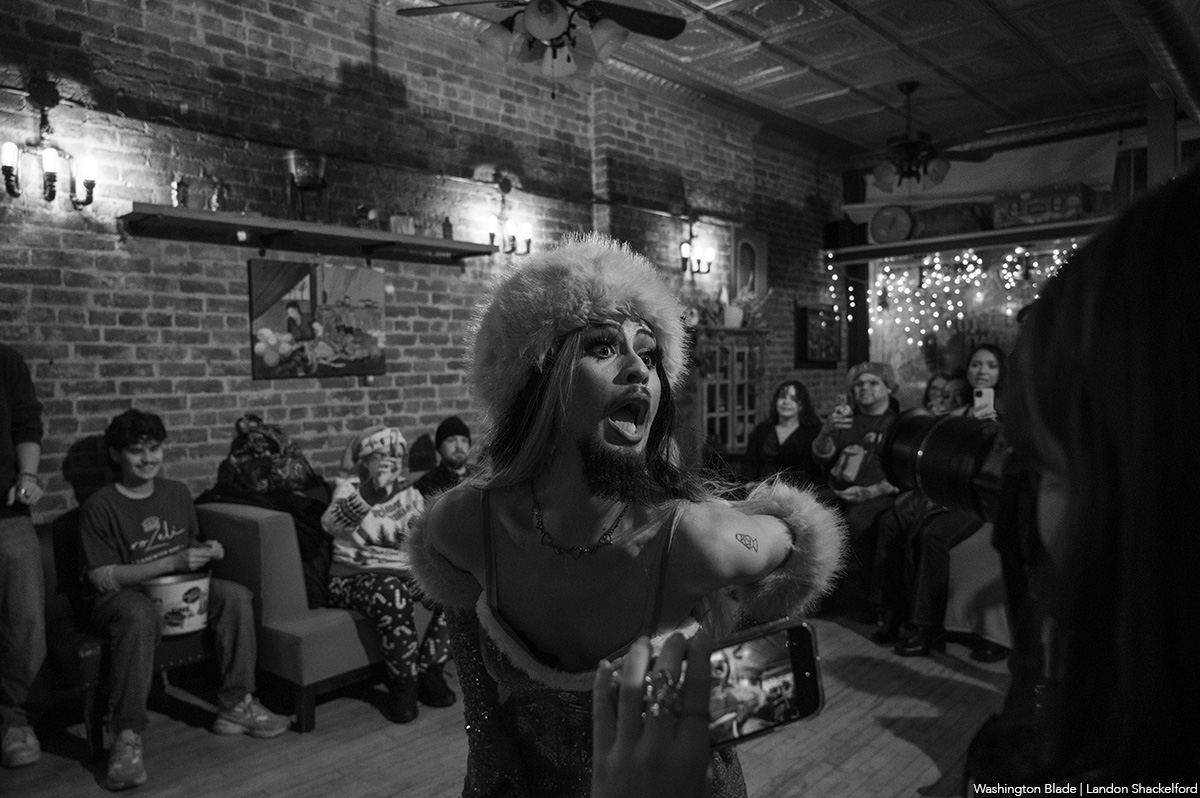
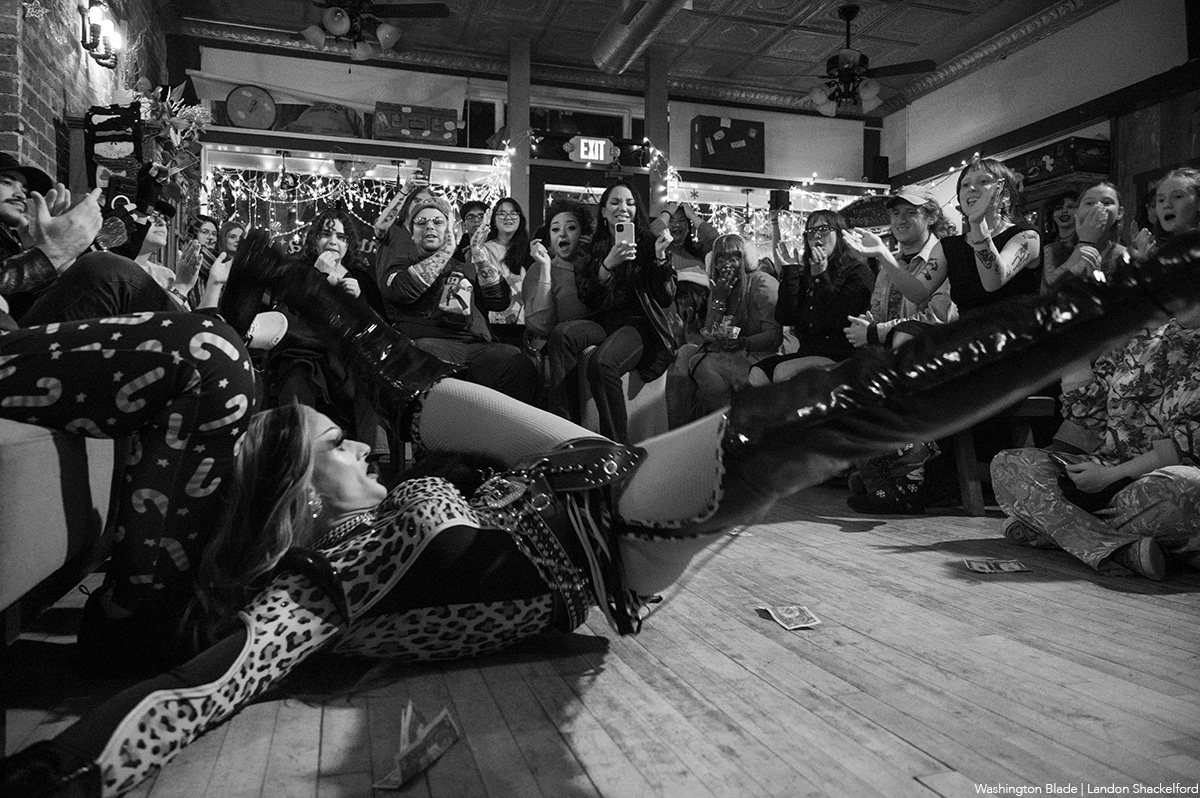
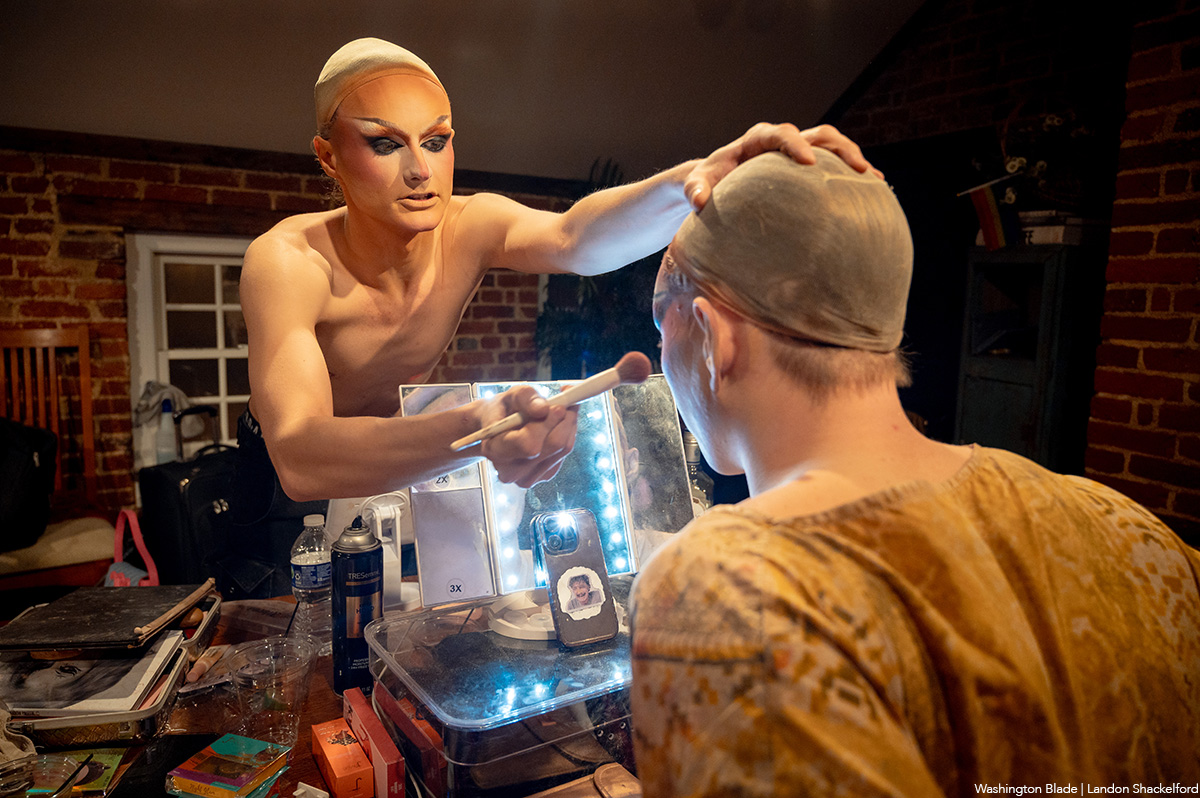
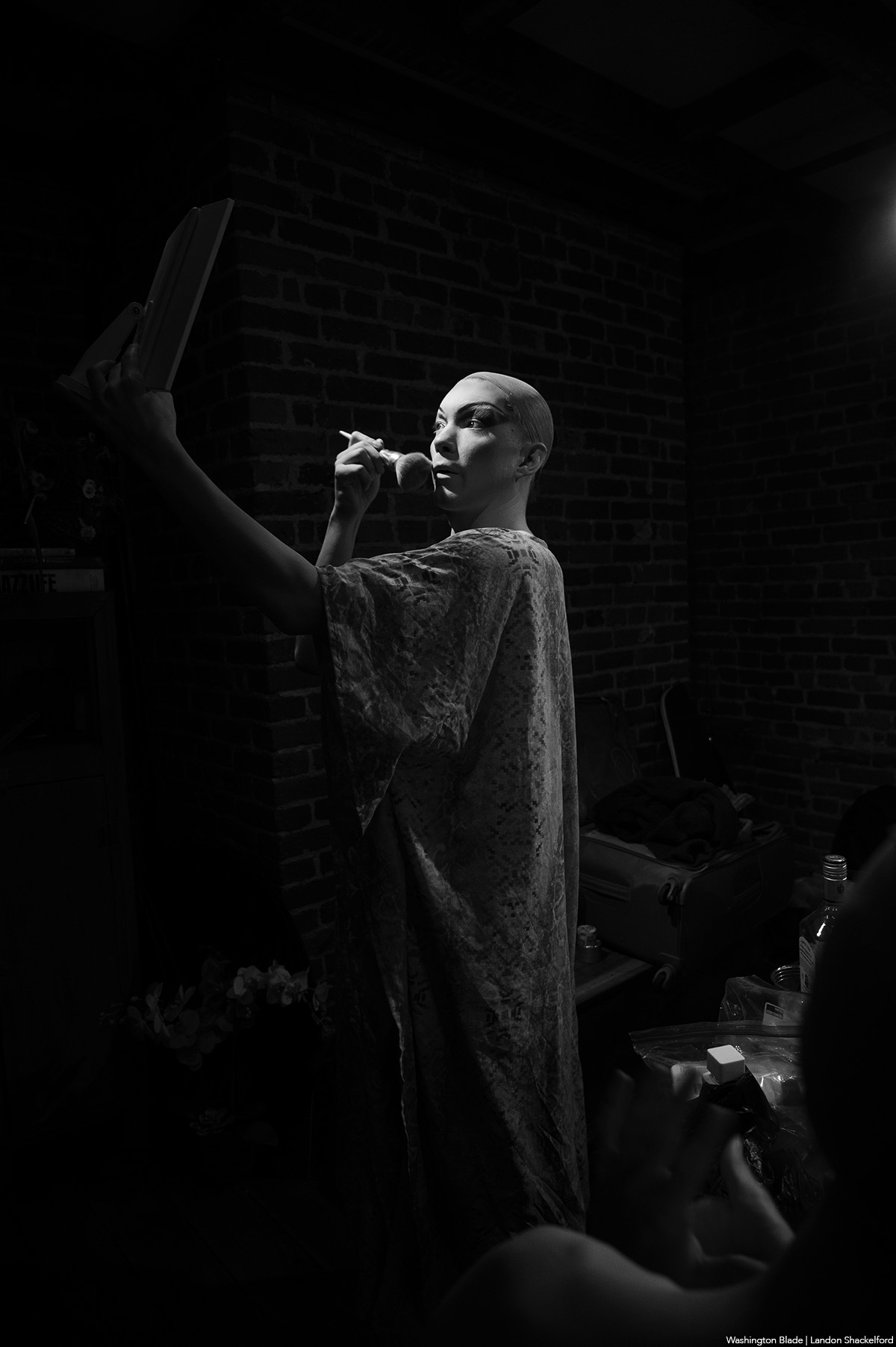
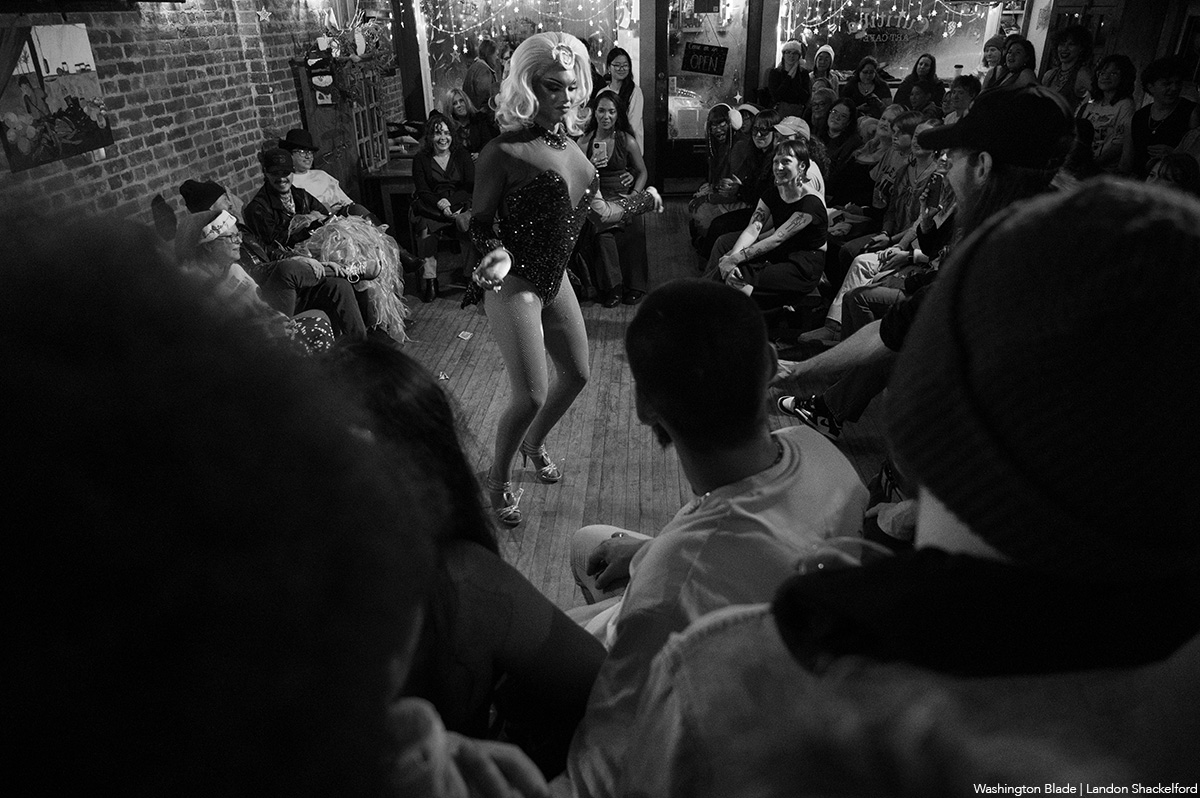
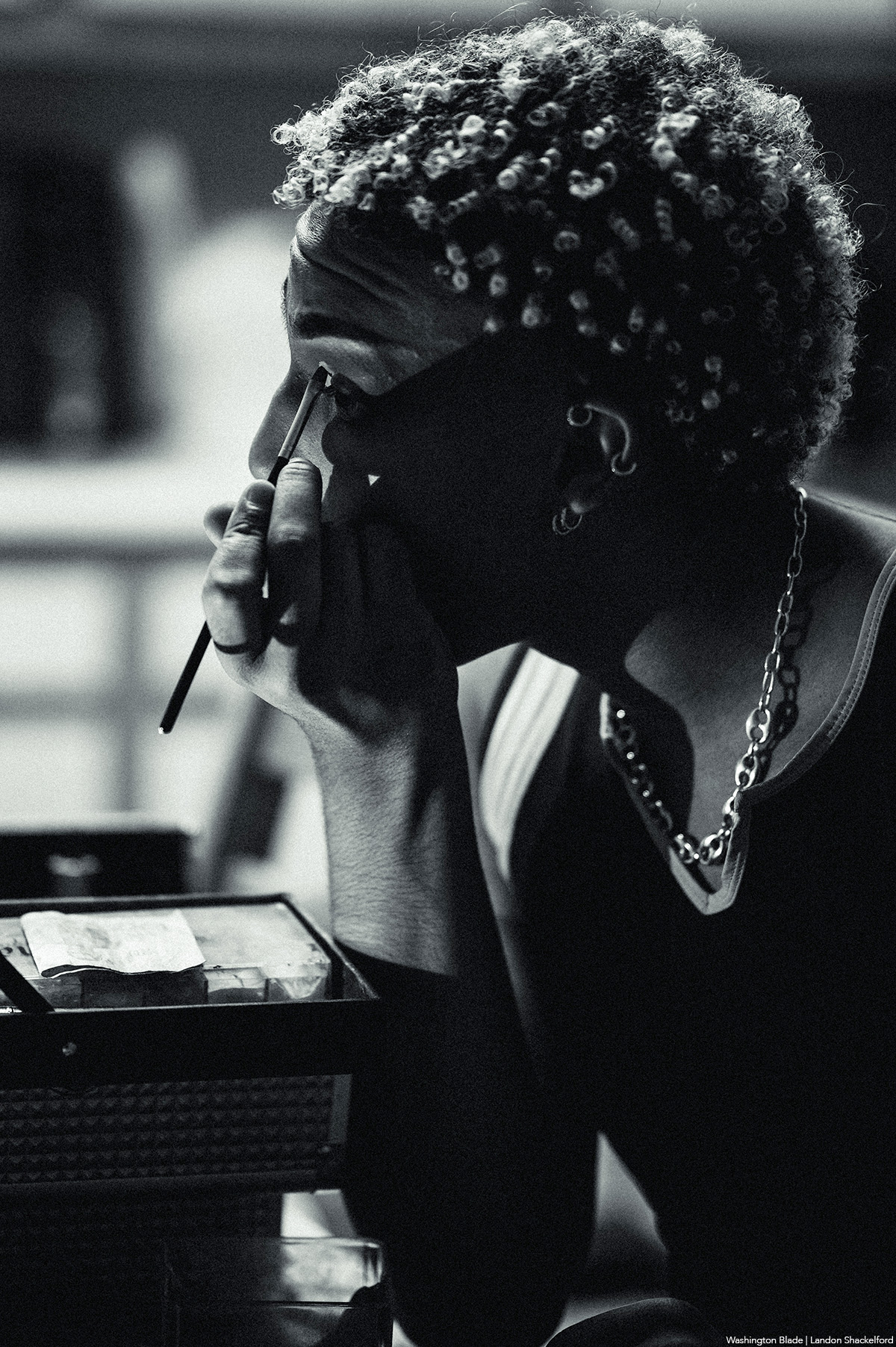
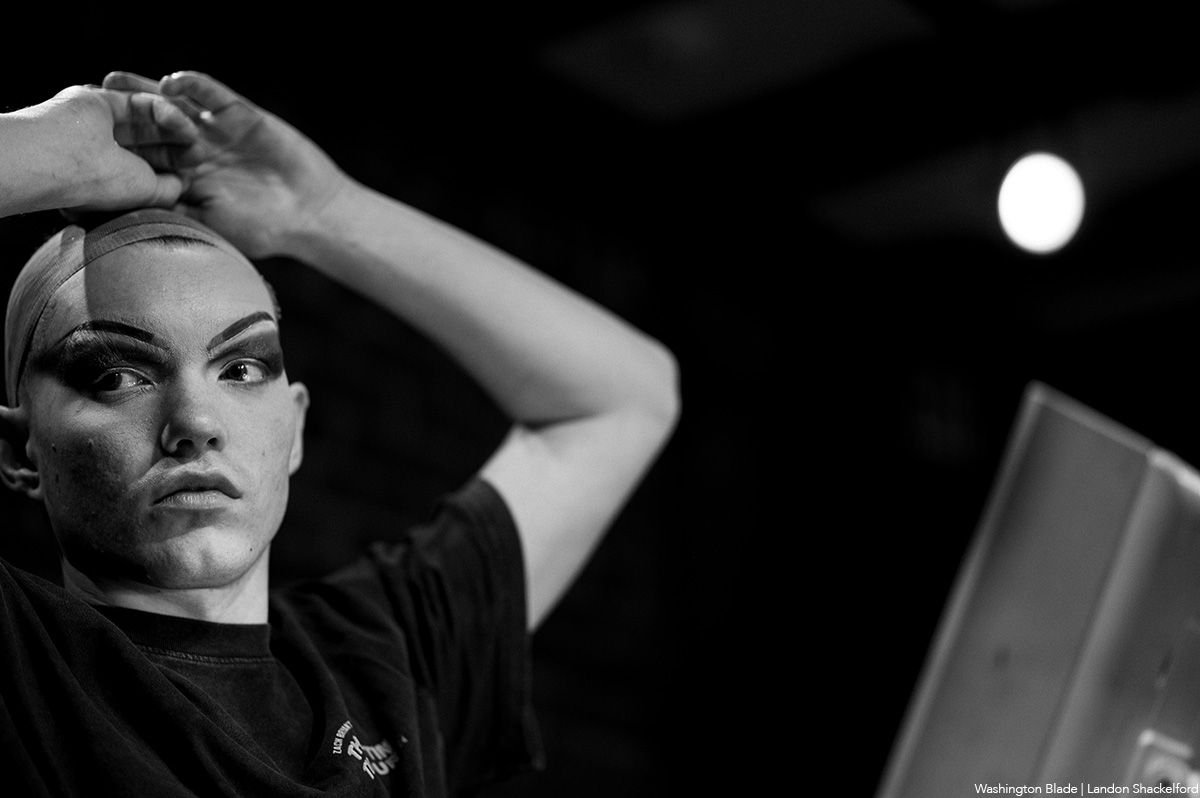
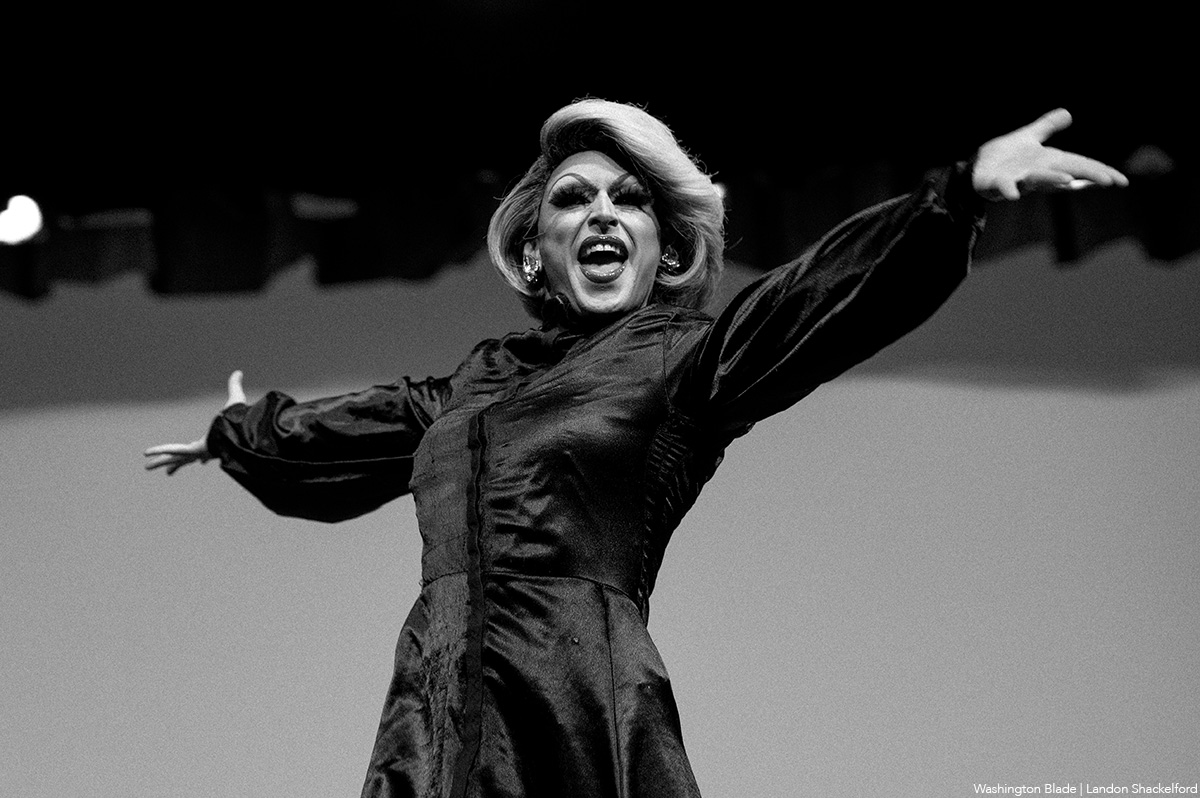
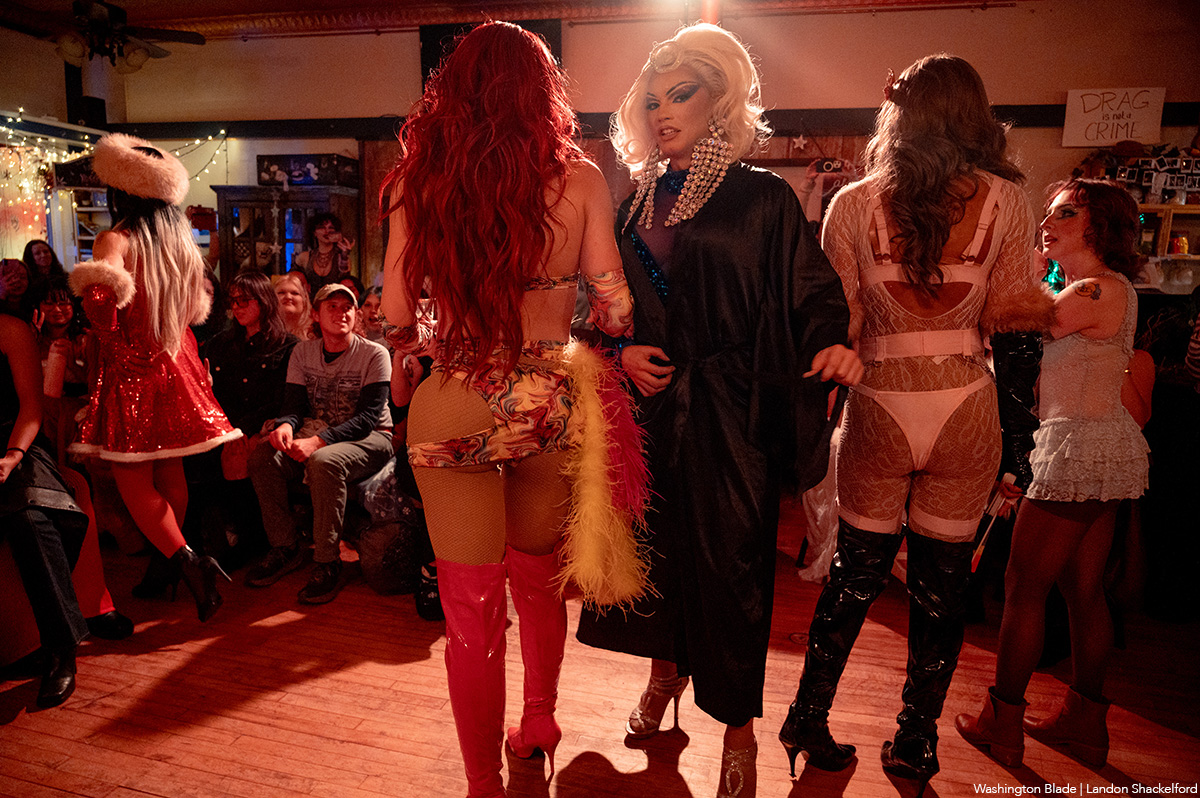
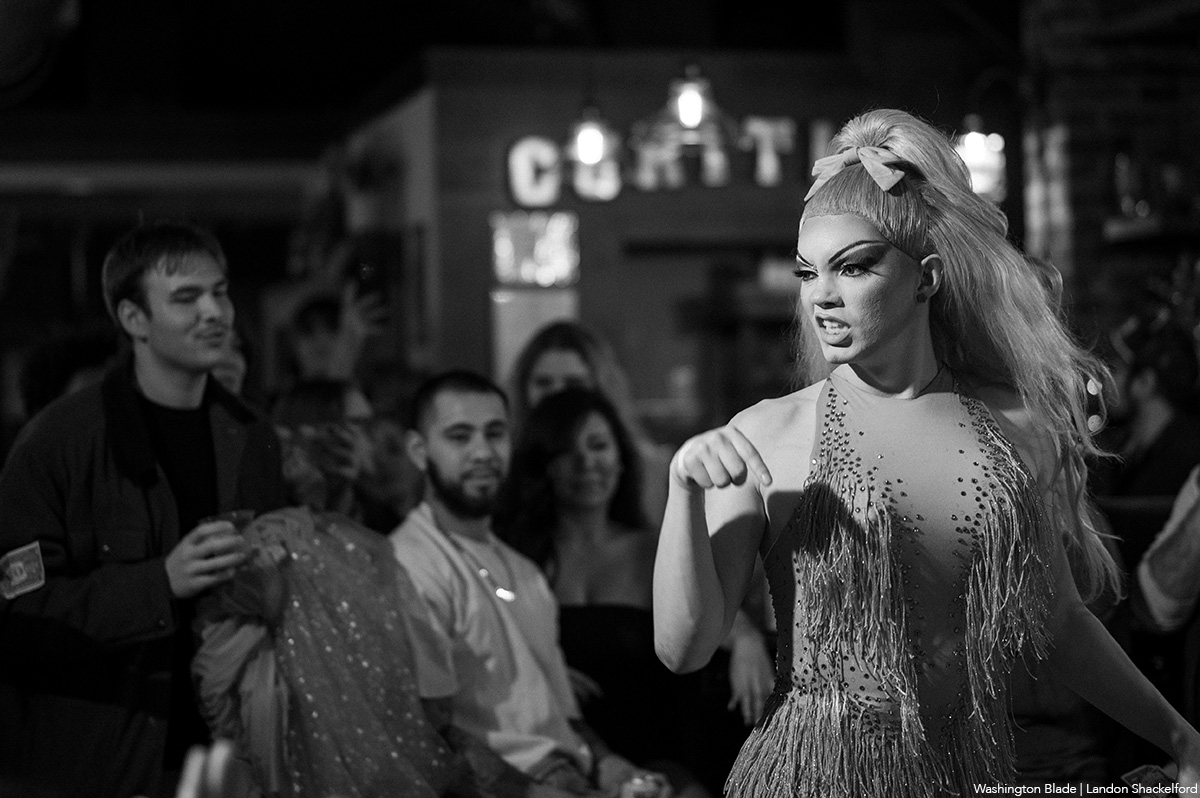
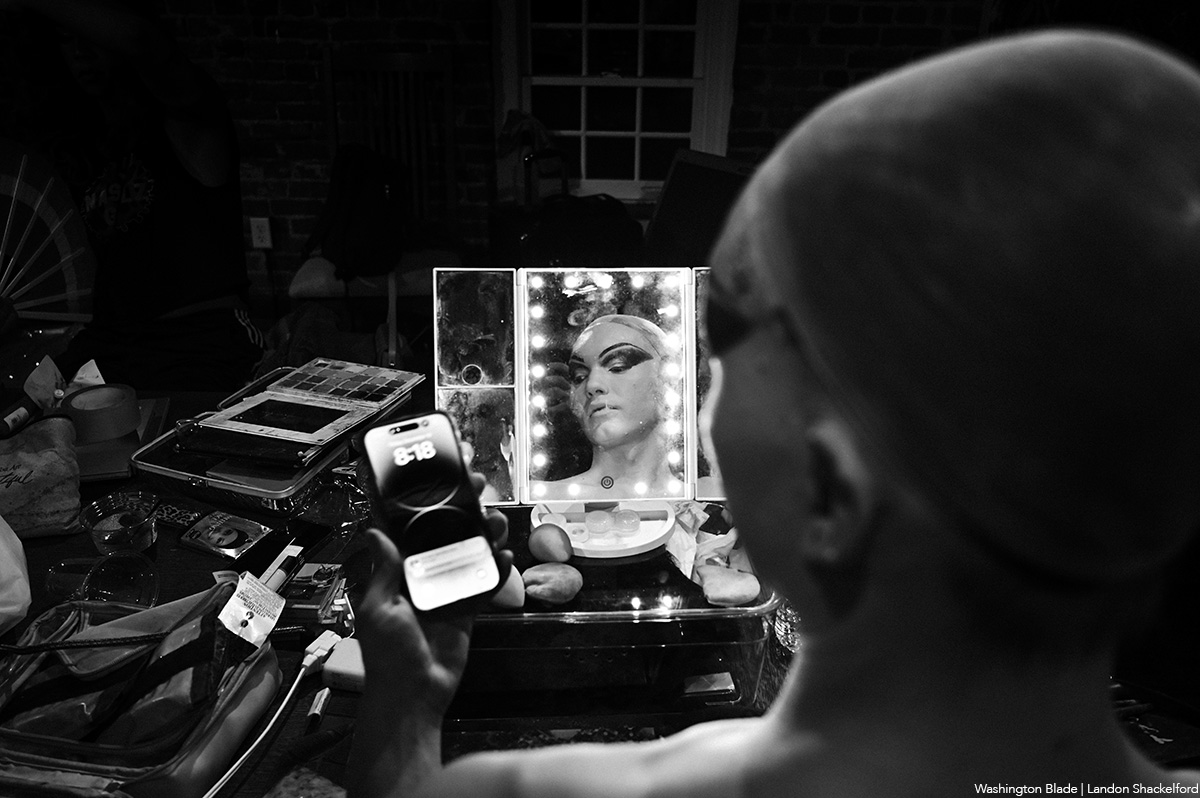
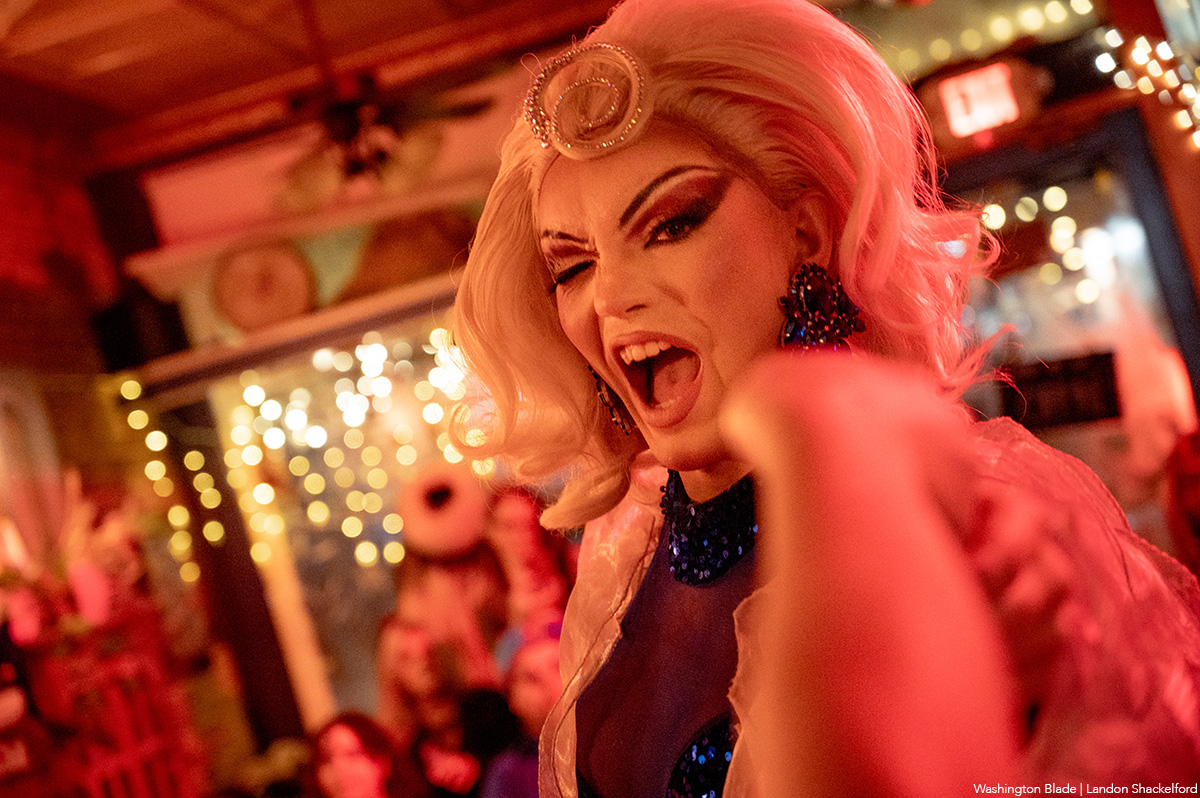
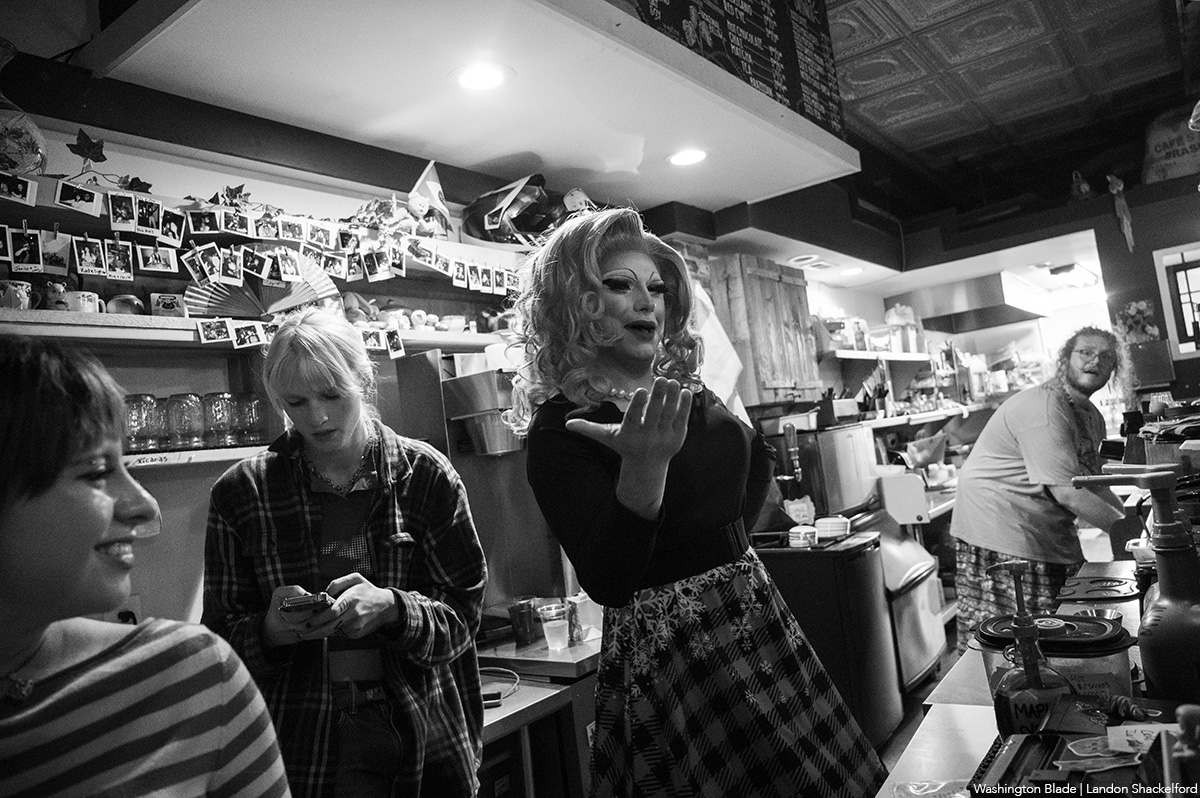
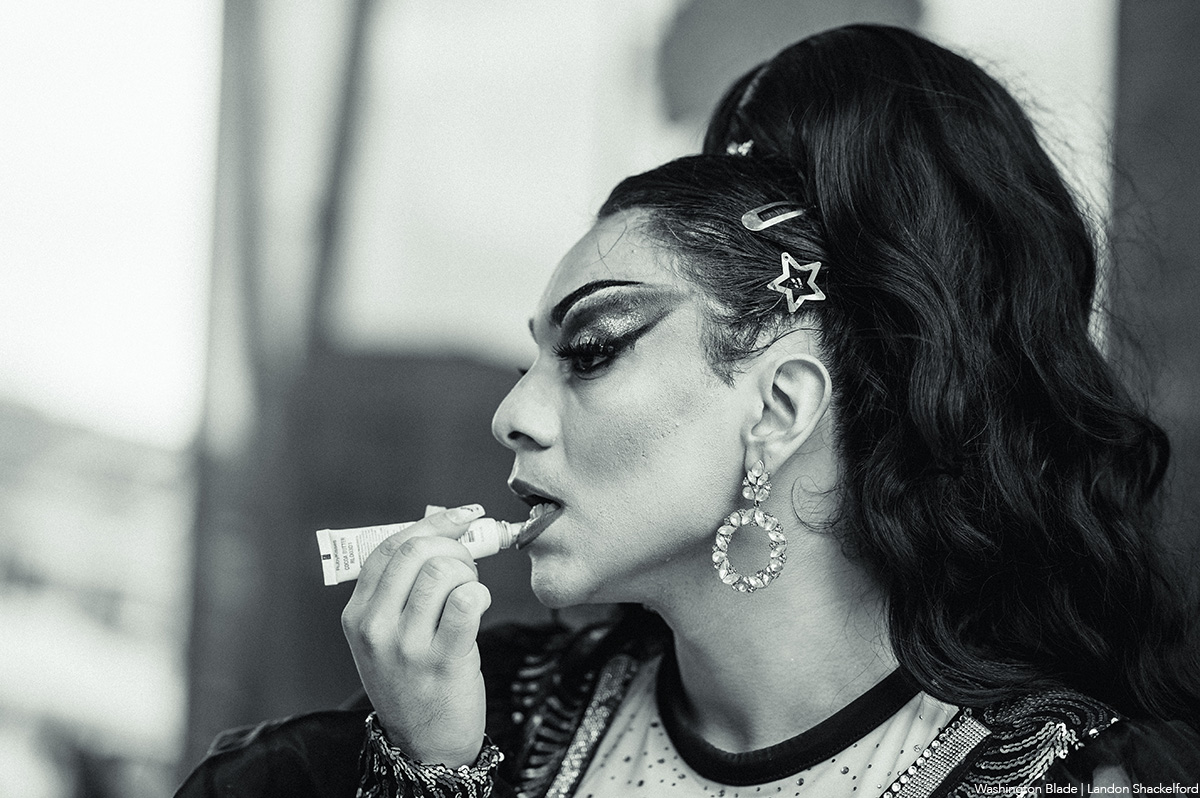
-

 a&e features5 days ago
a&e features5 days agoMarc Shaiman reflects on musical success stories
-

 Television5 days ago
Television5 days agoNetflix’s ‘The Boyfriend’ is more than a dating show
-

 Movies5 days ago
Movies5 days ago50 years later, it’s still worth a return trip to ‘Grey Gardens’
-

 Opinions5 days ago
Opinions5 days agoSnow, ice, and politics: what is (and isn’t) happening



















